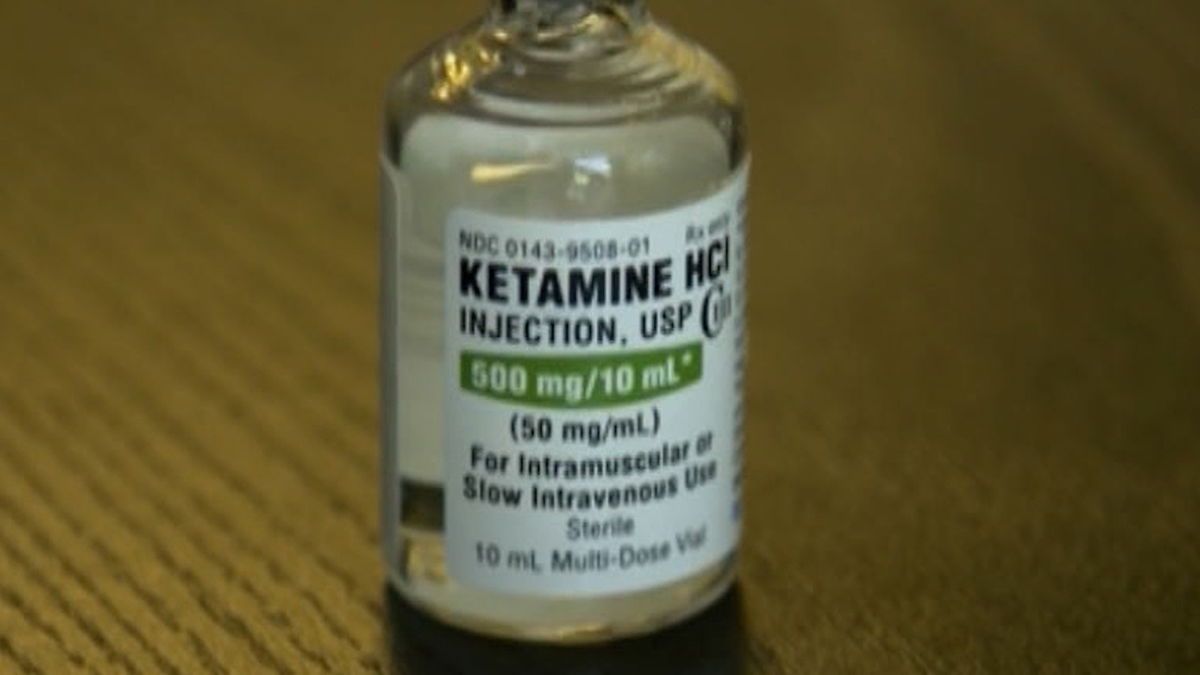Colorado Springs family suing for death after paramedic ‘improperly injected ketamine’
EL PASO COUNTY, Colo. (KRDO) -- The family of a Colorado Springs mother who died after being injected with ketamine is demanding accountability.
In 2018, Jerica LaCour, a 29-year-old mother of five children, was strapped down onto a gurney and a paramedic injected her with the chemical restraint or drug. Minutes later, LaCour died from alcohol and ketamine intoxication.
“Every day, all day, we think about her,” Anthony LaCour, Jerica's husband, told 13 Investigates.

Back in October, the LaCour family filed a lawsuit claiming negligence leading to wrongful death by the American Medical Response (AMR) and the paramedic at the scene, Jason Poulson.
On January 11, 2018, El Paso County deputies responded to a truck lot at the 900 block of Conrad Street for a trespassing report.
According to an account of the events from a Cimarron Hills firefighter obtained by 13 Investigates, LaCour was curled up in the fetal position, and crying hysterically when Emergency Medical Services (EMS) arrived at the scene.

On body-worn camera video from an El Paso County Deputy at the scene, LaCour can be heard begging to go home and wanting to be with her kids.
“I can’t bring myself to watch (body camera video)," Anthony LaCour told 13 Investigates. "It’s already bad enough without her being here.”
In an effort to calm LaCour down, the lead paramedic decided to inject LaCour with ketamine.
According to the Colorado Department of Public Health and Environment (CDPHE), ketamine is a medication causing altered sensory perception and is meant to calm patients down.
While LaCour was being tied down to a cot, the 29-year-old is heard screaming for EMS to let her go. During this time, someone is heard on a body-worn camera video saying, "guess who gets ketamine."
According to the LaCour lawsuit against AMR, Poulson is the EMS responder who says this.
Minutes after ketamine is injected, LaCour died.
According to accounts from the Cimarron Hills firefighter on the scene, LaCour started swinging at the EMS providers before being tied down to the cot. This incident is not clearly seen in the body-worn camera video.
However, after LaCour's arms were restrained, the firefighter says the mother of five started to calm down and was no longer fighting. When Poulson came back with a syringe in his hand and went to administer the medication, the firefighter asked him not to.
“I told the medic she had calmed down and did not need to administer ketamine," the firefighter stated in her report. "The medic stated that she was in excited delirium.”
Descriptors for excited delirium syndrome include hyper aggression, increased strength, and police non-compliance according to the CDPHE. State health officials recently deemed the assessment of excited delirium syndrome to be associated with racial bias against African American men.

After the ketamine was injected, LaCour calmed down on camera, but it didn't take long for additional problems to arise. The firefighter said she notified the paramedic that LaCour wasn't breathing multiple times.
“I notified the medic that it appeared that the female was no longer breathing," the firefighter said in her report. "I alerted the medic again that the female was not breathing. The medic stated she was fine. I told the medic three times that it appeared the patient was no longer breathing and we needed to start bagging her.”
According to LaCour's autopsy report, the El Paso County woman died from respiratory arrest from alcohol and ketamine intoxication.
“[Poulson] did it anyway, and that caused the death of Jerica LaCour now her children, her five children, don’t have a mother,” Dan Kay, an attorney representing the LaCour family, told 13 Investigates. "She was upset; she was crying; she wasn't violent; she wasn't fighting; she wasn't spitting."
In 2021, state health officials opened an investigation into the incident and Poulson's conduct. State health officials found that Poulson improperly administered the ketamine, and medication was accidentally ejected from the syringe, causing an unknown dosage to be administered.

They also found that Poulson initially failed to note on the patient care report that he administered ketamine at all.
As a result of the state investigation, Poulson's paramedic certification is currently on probation until December 3, 2023. 13 Investigates was unable to confirm if Poulson is still working as a paramedic in Colorado.
The state tells 13 Investigates they made no finding regarding whether the use of ketamine was justified or not in the case of Jerica LaCour.
But LaCour is not an isolated incident.
In 2019, Elijah McClain, 23, was killed after paramedics and police allegedly held him down and injected him with ketamine.
McClain's death sparked the Colorado State legislature to pass two key pieces of legislation to address ketamine and EMS oversight in the state.
The first was in 2021, with the Appropriate Use Of Chemical Restraints On A Person bill, limiting the circumstances when ketamine can be used outside of hospitals by paramedics. The bill also eliminated excited delirium as a justification for use of the medication by paramedics.
The second bill passed in 2022, with the Ambulance Service Sustainability And State Licensing bill, making it so all ground ambulance services would be regulated by the CDPHE, and created the EMS System Sustainability Task Force.
According to numbers obtained by 13 Investigates from the CDPHE, in 2019 when McClain died, Ketamine was administered by EMS 457 times for excited Delirium. Nearly a quarter of those ketamine doses had reported complications.
Two years later, ketamine administrations dropped to less than 100 in large part from health officials suspending the use of excited Delirium as justification for ketamine use that year.
Even after the suspension, ketamine is being used hundreds of times outside of hospitals.
According to their 2022 annual report to the legislature, the CDPHE said ketamine was administered by EMS at least 1,500 times in Colorado from July 2021 to the end of June 2022. 2% of those reported administrations of ketamine had complications.
For LaCour's family, the changes to policy came too little too late.
“It’s hard for me to deal with my children because I don’t want them to see me crash," Jerica's husband told 13 Investigates. "I gotta stay strong for them. She was my strength my courage. She gave me the ability to become the man I am today.”
AMR declined to speak with 13 Investigates due to the pending litigation.
If the lawsuit is successful, Anthony LaCour says any financial relief would go to Jerica's five children.
